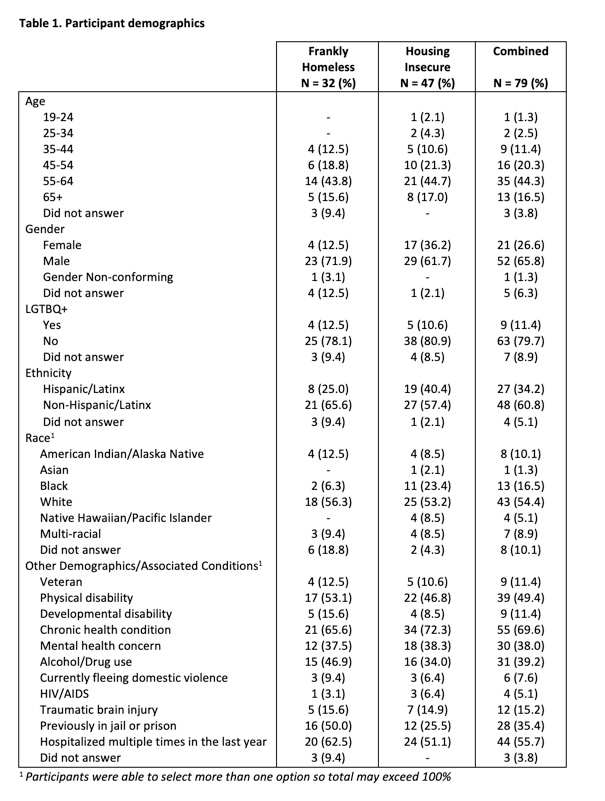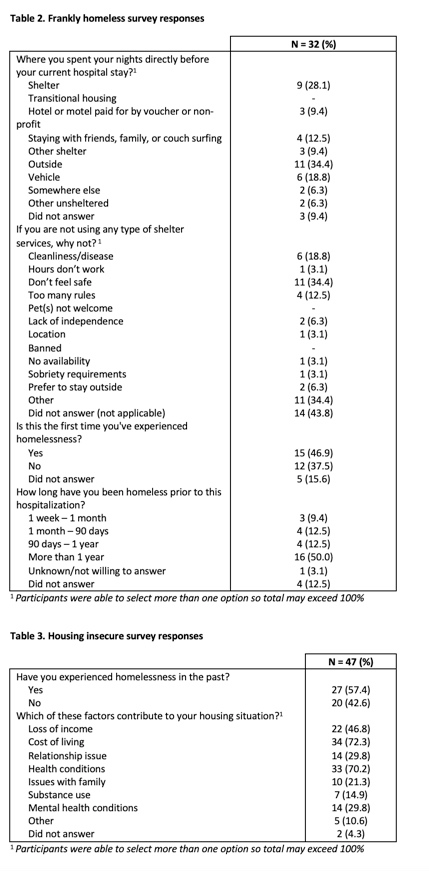Background: Lack of stable housing adversely affects health outcomes, increases healthcare utilization, and increases mortality. Few studies have assessed the prevalence of homelessness and housing insecurity in hospitalized patients. To address this gap, we conducted a hospital point-in-time study to determine the prevalence of housing insecurity and homelessness among hospitalized patients at two academic medical centers in metropolitan Denver.
Methods: Medical-surgical patients admitted at Denver Health Medical Center and the University of Colorado Hospital on January 24, 2022, were eligible to participate. Patients were included if they were >18 years old, available in their hospital room, and able to consent. Researchers administered a survey to determine patients’ housing status: stably housed, housing insecure (concerned about losing reliable housing within 2 months or spending >50% monthly income on rent), or homeless. Additional medical and sociodemographic characteristics were assessed for patients reporting housing insecurity or homelessness.
Results: A total of 465 patients were screened across both hospitals; 271 consented to participate. 79 patients (29.1% of the sample) were experiencing either housing insecurity (n=47, 17.3%) or homelessness (n=32, 11.8%). Of these 79 patients, 52 (65.8%) were male and 48 (60.8%) were above 55 years-old. The majority (69.6%) reported chronic health conditions, 55.7% reported multiple hospitalizations the preceding year, 38% reported mental health concerns, and 39.2% reported substance use. Additional demographics are reported in Table 1. Of the 47 patients experiencing housing insecurity, 34 (72.3%) cited cost of living as a contributor to their housing concern. Of the 32 homeless patients, 23 (71.9%) reported sleeping in unsheltered locations, commonly citing safety (34.4%) and cleanliness (18.8%) as the most common reasons for avoiding shelters. Additional survey responses are reported in Tables 2 and 3.
Conclusions: A substantial portion of hospitalized patients experience homelessness or housing insecurity and are not accounted for in annual community point-in-time counts, underestimating the true housing crisis. The prevalence of homelessness was much higher among hospitalized patients than in the general metropolitan Denver population. Our findings highlight the need for hospitals to accurately capture and understand the medical and social needs of this vulnerable population. Increased access to affordable housing with supportive medical, behavioral health, and substance use services are needed to address the impact of the housing crisis on patients and healthcare systems.


